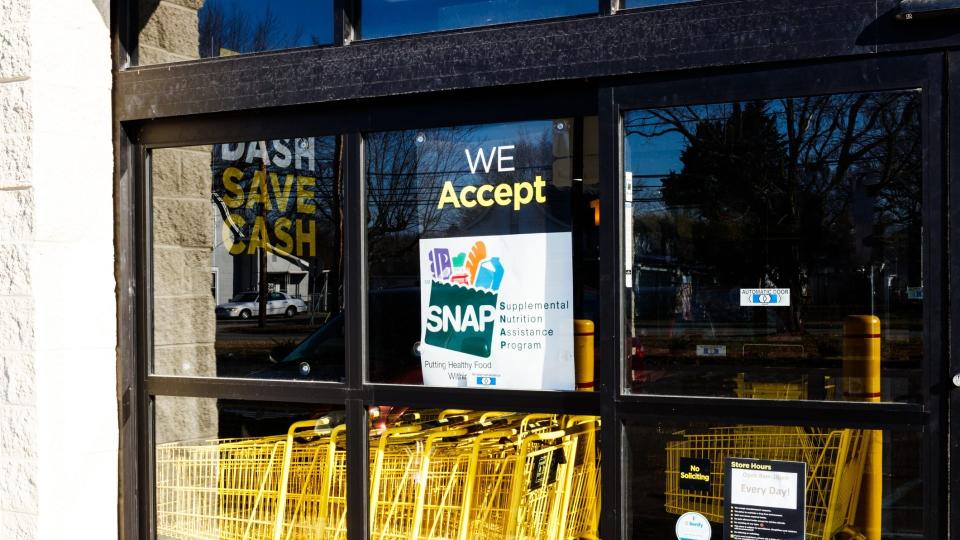Food Stamps: How Ending SNAP Emergency Allotments Could Hurt Big and Small Businesses

Emergency Supplemental Nutrition Assistance Program (SNAP) allotments (commonly referred to as food stamps) that were provided during the pandemic ended in March 2023 in most states across the U.S. Emergency allotments had already ended in 17 states by February. In Washington D.C., Guam, and the U.S. Virgin Islands, February was the last month SNAP recipients received a higher benefit amount.
See: 11 Grocery Items To Buy at Dollar Tree
Find: How To Guard Your Wealth From a Potential Banking Crisis With Gold
While those who rely on SNAP benefits were greatly impacted as their food budgets were suddenly slashed, the move could also hurt the economy in other ways. Grocers, dollar stores, farmers’ markets and other businesses that accept SNAP may see reduced business moving forward in 2023.
Research indicates that SNAP recipients account for roughly 12% of all food and beverage sales online and in stores, according to CNBC. During the pandemic, with enhanced benefits, that percentage rose by 19% year-over-year, while non-SNAP shoppers drove just 1% of dollar growth.
A report from IRI showed that SNAP households purchased $74 billion of total food and beverage (minus produce, bakery, and deli) throughout the 2020 calendar year, up from $55 billion between August 2019 and August 2020.
More: Will Ending SNAP Emergency Funds Hurt Biden 2030 Anti-Hunger Goal?
It’s not just grocery stores that will feel the pinch, either — although they will be greatly affected. One in five Americans now purchase at least some of their groceries at dollar stores, including Dollar General and Dollar Tree, according to a Coresight Research report recently covered by GOBankingRates.
While SNAP food cuts will affect farmers’ markets, grocers and other retailers, there are other proposed restrictions in the works that could also hurt these businesses, which typically operate at low profit margins.
The 2023 Farm Bill — currently under deliberation — could further restrict food choices of SNAP participants, according to Supermarket News. Right now, SNAP recipients can use their EBT card to purchase a wide range of fresh, frozen and processed foods, with exclusions limited to categories like alcohol, cigarettes, and prepared hot food. Legislation, if passed, could restrict foods to items approved by the U.S. Department of Agriculture. This would limit food choice for consumers, particularly in areas with limited food access, and reduce sales for grocers.
“It is difficult in this very low margin business to develop capital and sustain a business without outside support,” said Stephanie Johnson, vice president of government relations for the National Grocer’s Association (NGA), in a letter to Congress reported by Supermarket News.
Take Our Poll: How Much Salary Would Buy You Happiness?
Costco’s Best Deals? Employee Reveals 10 Standout Buys for Your Money
The NGA is pushing for incentives for grocers to expand in rural and low food access communities and the implementation of programs to help grocers roll out the technology to accept EBT as a form of payment online and in stores. While these programs could help grocers increase revenue through SNAP purchases, it won’t make up for the money lost as SNAP recipients receive less per month to buy groceries.
More From GOBankingRates
This article originally appeared on GOBankingRates.com: Food Stamps: How Ending SNAP Emergency Allotments Could Hurt Big and Small Businesses
